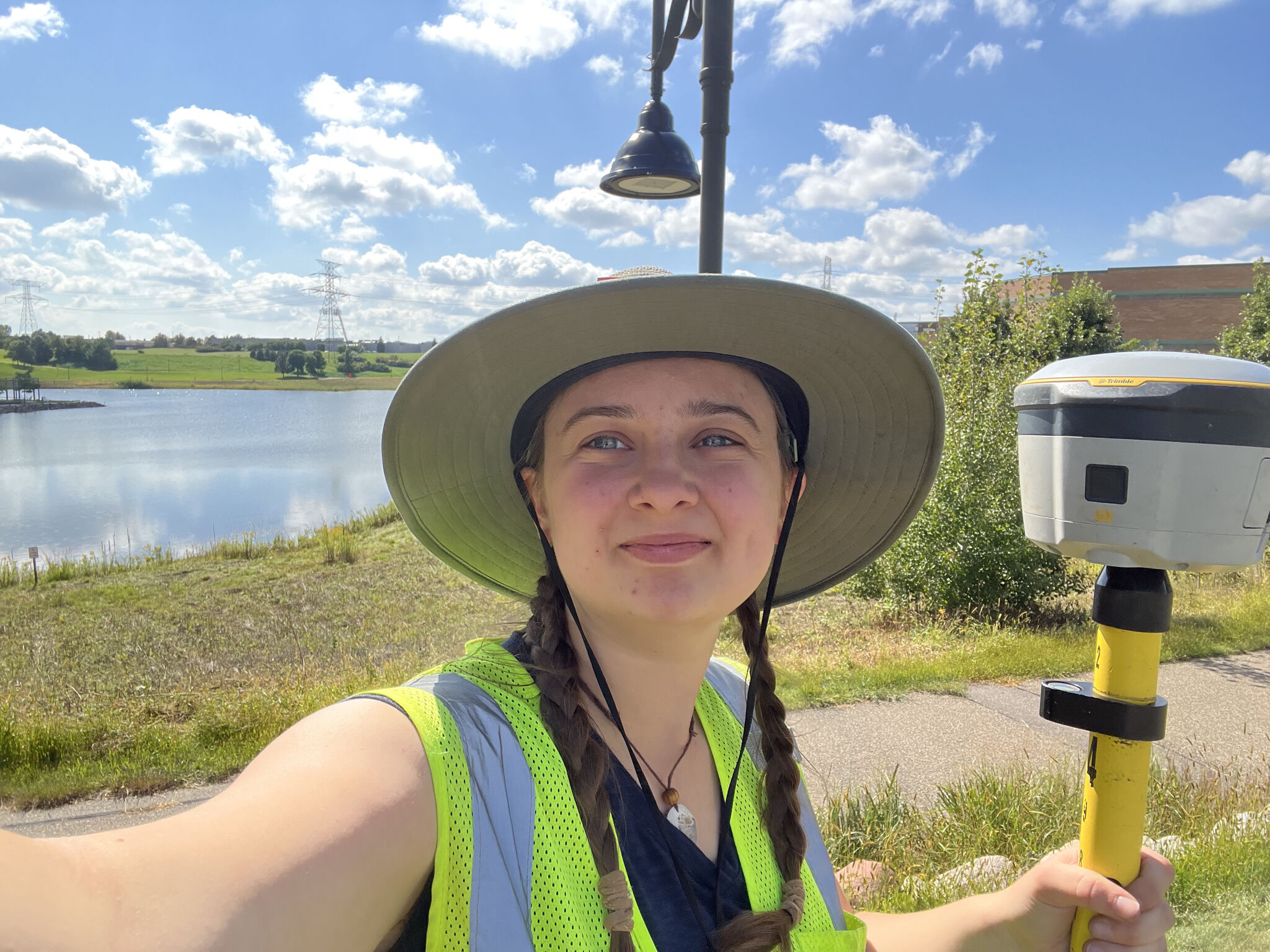Map Your Future with a Master of Science in Geographic Information Science
Master the power of mapping and data to shape smarter, more ethical decisions in government, business, and the environment.
Whether you're advancing your career or pivoting into a new one, you’ll gain cutting-edge GIS expertise, hands-on project experience, and a unique faith-informed lens on a fast-growing field.
Why Earn an MS in GIS from Calvin?
Here’s why earning a Master of Science in Geographic Information Science from Calvin's nationally ranked program is a smart, future-focused choice:
- Flexible: Whether you're a working professional, a recent graduate, or a Calvin undergrad pursuing the 4+1 track, our program adapts to your goals and timeline. Your courses are completely asynchronous and online.
- Faith-informed ethics: Calvin is the only Christian university where you can earn a Master of Science in GIS online. You won't just learn technical skills—you'll navigate complex but crucial questions about privacy, surveillance, and justice in mapping.
- State-of-the-art technology: We're committed to staying on the cutting edge of this rapidly-evolving field. Your courses always feature training and technology that match or exceed the latest industry standards.
- Loading...
At a Glance
Complete in 9-24 months
Cost per credit
No GRE required
Course spotlights
Remote Sensing of Earth
Explore how satellites, drones, and aerial photography help us study Earth’s landscapes—both natural and human-made. This course includes lab work and drone-based homework, with exciting topics like photogrammetry and 3D terrain modeling.
Geospatial Programming and Data Management
Learn to code with Python and build custom GIS tools using ESRI software and Map Objects. This course blends programming with practical projects, including designing a full GIS solution for a business or organization.
What to expect
Calvin’s Master of Science in GIS program emphasizes practical application at every step. We build cutting-edge technology and experiences into every class—along with a strong ethical perspective—in this high demand, fast-growing field.
Every course is built around real-world scenarios in areas like computer cartography, mapping science, and data management. That means plenty of hands-on experience, which translates into careers in local government, urban planning, environmental management, and beyond.
Whether you're seeking a career shift, promotion, or a pathway to certification, Calvin’s GIS program offers flexible entry points—including a 4+1 option for Calvin undergrads. You’ll graduate with all the technical expertise you need for a rewarding career—and a faith-based vision for how these skills and technologies can benefit your community.
Career Possibilities
According to the Bureau of Labor Statistics, geographic information science is expanding at a steady pace of 5% per year. More than 1,600 new GIS careers will be available by 2029.
Regardless of your chosen career path, this program will provide you with the advanced skills and hands-on technology experience needed to achieve your goals.
Here are just some of the careers you could pursue.
GIS Analyst or Specialist – support local governments, utilities, or private firms with spatial data analysis and mapping.
Urban or Regional Planner – use GIS to inform zoning, infrastructure, and community development decisions.
Environmental Consultant – monitor ecosystems, manage natural resources, and assess environmental impact.
Drone Mapping Technician – collect and analyze aerial data for agriculture, construction, or conservation.
Public Health Analyst – map disease trends, healthcare access, and demographic data to inform policy and response.
Emergency Management Planner – support disaster preparedness, response, and recovery planning.

Have questions? Contact us!
The GIS master's program was excellent. I appreciated that the classes were practical and covered a wide variety of disciplines, from environmental topics to business analysis. Our professors are the best and I loved the collaborative work environment they created.

Featured Faculty Highlight
FAQs
You can choose to pursue the program either part-time or full-time depending on your preference. Our enrollment team will help you map out your plan of study.
Yes. This program accepts transfer credit with program director approval.
The faculty includes tenured, full-time professors who bring extensive, real-world experience to each class.
While there are no fees associated with this program, you may have costs for textbooks and course materials.












